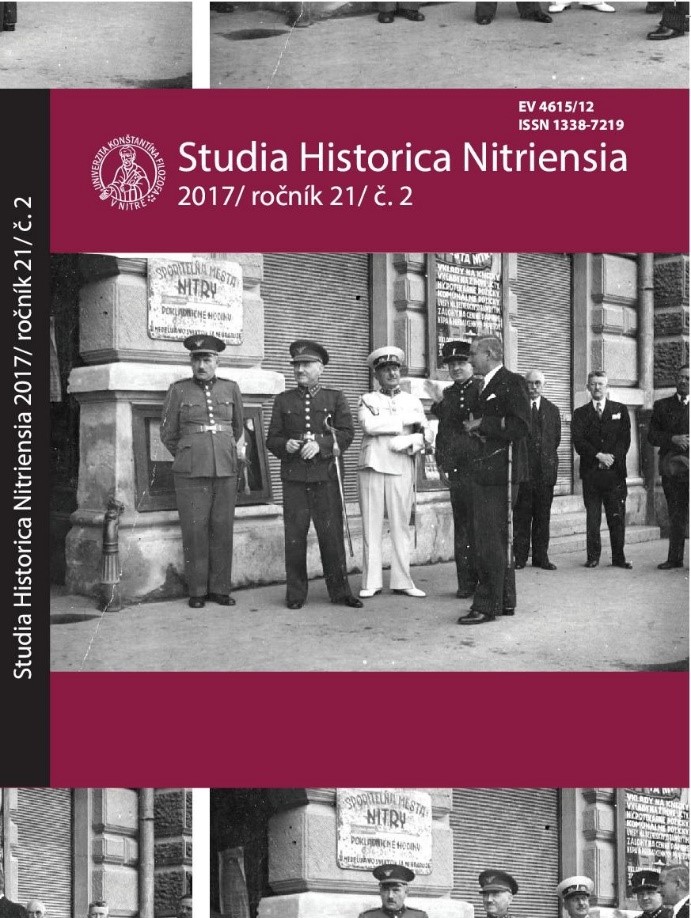Divadelníctvo v Nitre v rokoch 1939 – 1945
Stage-craft in Nitra between The Years 1939-1945
Author(s): Miroslav PalárikSubject(s): History, Theatre, Dance, Performing Arts, Cultural history, Political history, Interwar Period (1920 - 1939), WW II and following years (1940 - 1949)
Published by: Univerzita Konštantína Filozofa v Nitre, Filozofická fakulta
Keywords: Slovak Folk Theatre; Stage-Craft; Nitra; Totality;
Summary/Abstract: The totalitarian regime established in Slovakia after October 1938 affected not only the political and economic life, but it was fully manifested in the cultural sphere and ways of spending leisure time as well. Residents of Nitra could feel "the cold breath of totalitarianism" on their own skin in the form of restrictions and regulations issued by the governing party through local loyal representatives during the Second World War. Regulations issued during the Second World War by Hlinka' Slovak People's Party influenced stagecraft as well as other elements of leisure time activities. After the Vienna Arbitration, Slovakia lost the city of Košice with the second most stable theatrical scene. There was a theater company only in Bratislava along with several touring and amateur theaters. Their number had been significantly reduced. The government power was not interested in Czech artists, who had to leave the country. It supported mainly Slovak dramatic works, however, there were only a few authors, who were able to write a good drama. Therefore, the government power tried to compensate this deficit by holding competitions for the best drama, but this effort did not have any great response among authors. Many dramatic pieces contained ideological elements. The works of some authors were even misused for propaganda purposes. A new theater ensemble led by Fraňo Devinský was established in Nitra at this time. The ensemble gradually spread and even persons who were suspicious of the regime started to act here. However, operation of theater was financially demanding and if Devinský wanted to maintain its operation with the help of state grants, he had to adjust the program to the requirements of state representatives. Therefore, this theater also performed dramatic plays that had national character and emphasized imaginary milestones in Slovakia's past. On the contrary, the state and critics were not in favor of operettas, which were very popular and attended by large crowds, who enjoyed their simple story and well-known songs. The amateur theatrical scene in Nitra almost completely ceased to exist. Amateur actors did not want to perform the theatrical plays required by the state and after the harsh criticism of one of its satiric plays, the amateur theatrical company completely ceased operation.
Journal: Studia Historica Nitriensia
- Issue Year: 21/2017
- Issue No: 2
- Page Range: 366-430
- Page Count: 65
- Language: Slovak

